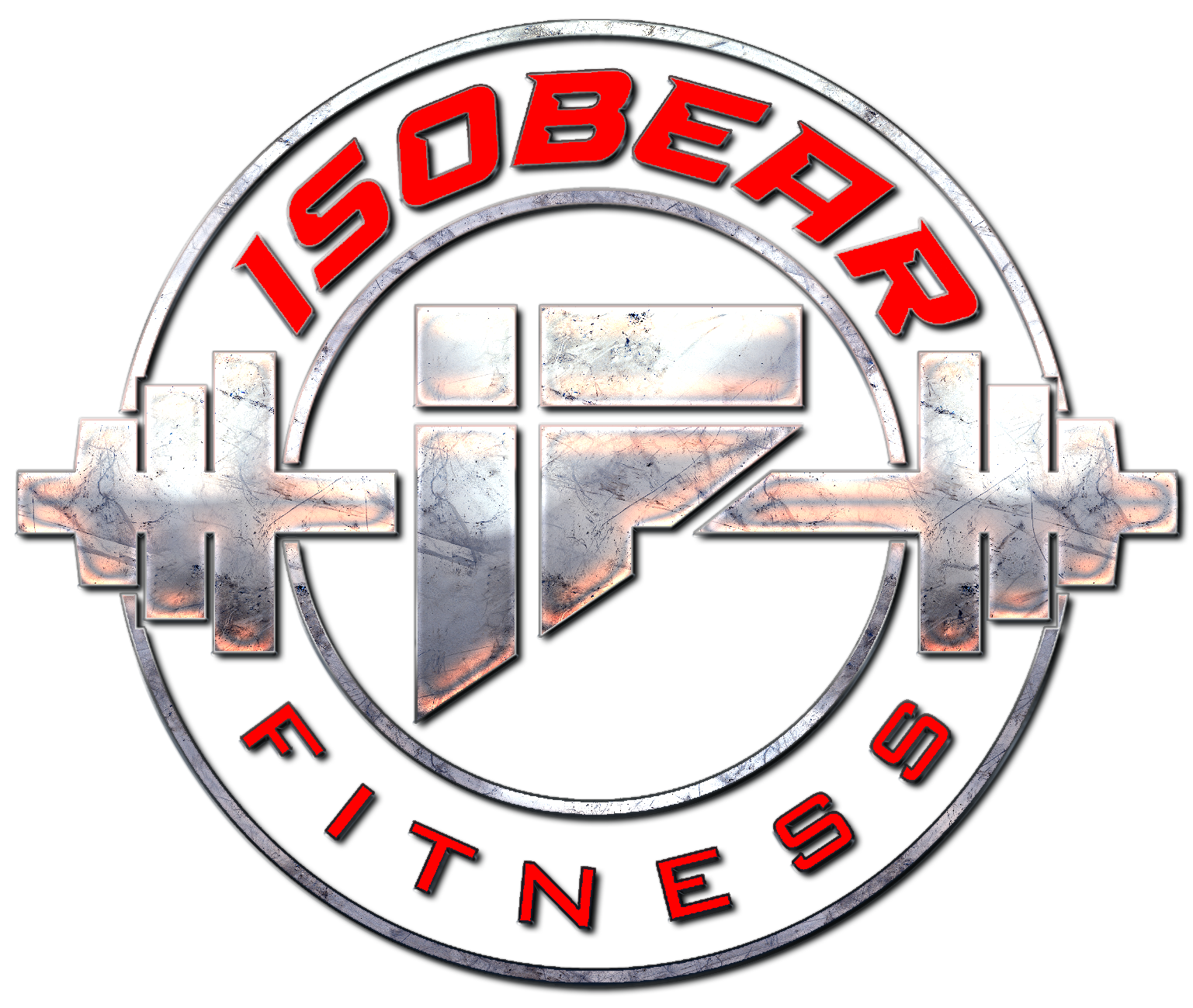As athletes over 40, keeping up with the younger competition can be difficult. Creatine supplements can be a great way to help you stay ahead of the game and maximize your performance.Creatine is a naturally occurring compound in the body, and it helps create energy for your muscles. It’s commonly used by athletes to help build muscle strength and endurance and to improve their overall performance.
Studies have shown that taking creatine supplements can help improve an athlete’s performance, especially for those over 40. Creatine can increase muscle strength, improve endurance, and help you recover faster after intense workouts. It can also help increase muscle mass and decrease body fat. In addition, it can help improve cognitive functions such as memory and focus. Taking creatine supplements can help enhance your performance as an athlete over 40 and keep you ahead of the competition.
Overview of Creatine Supplements
Creatine is a natural compound found in the body, and taking creatine supplements can help athletes increase muscle mass, strength, and performance. Understanding the benefits, different types, dosages, and cycling of creatine supplements is important to ensure that athletes get the most out of them and minimize side effects.
Creatine helps muscles produce energy during heavy lifting or high-intensity exercise. It is especially useful for explosive activities such as weightlifting, sprinting, and bodybuilding, where muscles reach their peak performance quickly. Different types of creatine supplements are available to suit different needs.
What Is Creatine?
But what, exactly, is creatine? Creatine is a nitrogenous organic acid that occurs naturally in vertebrates. It is primarily found in muscle tissue and helps regenerate ATP, the body’s primary energy source. In short, creatine is an important compound that is essential for athletes.
Creatine can be found naturally in some foods, such as red meat and fish, but supplementation has become popular in recent years as its benefits to athletes have become more widely known. Supplementation is an easy way to increase the body’s creatine levels, which can significantly impact athletic performance. Research has shown that creatine supplementation can improve performance during high-intensity exercise, increase muscle mass, and reduce muscle fatigue.
Due to its popularity, various types of creatine supplements are now available. It is important to understand their differences to choose the one that is best for you. The three most common types of creatine supplements are monohydrate, ethyl ester, and micronized. Each type has its benefits and drawbacks, so it is important to research before settling on one.
Benefits of Creatine for Athletes
Curious about the potential benefits of using creatine supplements? Let’s examine why creatine has become a staple among athletes and how it can help you reach your fitness goals.
Creatine is an amino acid found naturally in the body that helps muscles generate energy during high-intensity exercise. As such, athletes commonly use it to help build muscle mass, increase strength, and improve overall performance. But what makes creatine so special?
It’s an affordable and easily accessible supplement – making it a great choice for athletes on a budget. Plus, unlike other performance-enhancing supplements, creatine is considered safe for short-term use.
Creatine is especially beneficial for athletes participating in strength-based sports, like weightlifting. Studies have shown that it can significantly improve anaerobic performance, allowing athletes to push themselves harder during their workouts. In addition, it can help reduce fatigue and improve recovery time after exercise so that athletes can get back in the gym sooner.
Unlike some other supplements, creatine has also been found to affect muscles even when taken in relatively small doses positively.
Different Types of Creatine
Having established creatine’s benefits, it’s important to consider the different types of creatine available. Creatine monohydrate is the most common form and one of the most studied forms of creatine. It’s essentially pure creatine and sometimes comes with additional ingredients such as sugar or dyes. It’s generally the cheapest form; however, it’s also the least soluble in water, making it harder to dissolve in drinks.
Creatine hydrochloride (HCL) is a form of creatine bonded to hydrochloric acid. It’s more soluble in water, so mixing it into drinks is easier. It’s also considered to be more stable than creatine monohydrate.
Creatine citrate is a form of creatine combined with citric acid. It’s very soluble in water, and citric acid helps to increase its absorption rate. It’s also considered the best-tasting form of creatine, making it a popular choice for athletes that don’t like the taste of other forms of creatine.
How Creatine Can Help Athletes Over 40
Creatine is a naturally occurring compound that can help athletes over 40 maximize their performance. Increasing muscle mass and strength is the most obvious benefit of Creatine, as it helps build and repair muscles more quickly. Additionally, improving recovery time helps athletes maintain their energy levels and keeps them performing at their peak. Furthermore, enhancing workout performance helps them reach their goals faster.
Creatine may also help athletes over 40 in other ways, such as the effects of Creatine on performance.
Increase Muscle Mass and Strength
Picture this: You’re an athlete over 40 and want to return to the game. You want to build muscle, gain strength, and improve your performance. You wonder if there’s something that can help you get there. The answer is yes, and that something is creatine.
Creatine is a natural substance that helps the body produce energy. It’s a popular supplement athletes of all ages and levels use to increase muscle mass and strength. Studies show that creatine effectively boosts muscle growth and strength, making it an ideal supplement for athletes looking to improve their performance.
Creatine helps promote muscle growth and strength by increasing the body’s adenosine triphosphate (ATP) production. ATP is the energy source that powers muscle contractions, so the more ATP available, the greater the muscle contractions. This means that with creatine, you can increase the intensity of your workouts, allowing you to reach your goals faster.
In addition to its ability to help build muscle and increase strength, creatine also helps improve recovery time. This is especially important for athletes over 40 who may be more prone to injury or fatigue.
Improve Recovery Time
Creatine is known to have impressive benefits for athletes over 40, and one area it can make a huge difference is in recovery time. And it’s not just muscle recovery. Taking a creatine supplement can help with mental fatigue too.
Many studies have shown that creatine can reduce the time it takes to recover after a strenuous workout, allowing athletes to get back into the game faster and more energized for athletes over 40, who may not have the same quick recovery time as younger competitors, taking a creatine supplement could be a great way to boost their performance and give them an edge on their competition.
Creatine can also help reduce soreness and fatigue after a workout, allowing athletes to push themselves further and perform better. Since athletes over 40 may not have the same energy and endurance they did when they were younger, creatine can be a great way to help them get the most out of their workouts, allowing them to stay competitive with their younger counterparts.
In addition, creatine can help reduce the time it takes muscles to repair themselves after a workout, meaning athletes can bounce back faster and return to normal workout intensities sooner.
Enhance Workout Performance
Creatine has been scientifically proven to enhance workout performance for athletes of all ages. For athletes over 40, the benefits of creatine can be even more pronounced, as their bodies may become more susceptible to fatigue. Regularly using a creatine supplement allows older athletes to work out more intensely and for longer periods than they could without it.
Creatine helps to increase the levels of phosphocreatine in the body, which helps to replenish energy stores. This can help reduce the time spent recovering between workouts, allowing athletes to return to their workout routine more quickly. This can be especially beneficial for older athletes, who may be more prone to fatigue than younger athletes.
Creatine can also help to stimulate muscle growth and increase strength. This can help athletes to lift heavier weights and get more out of their workout. This can be especially beneficial for older athletes, as they may not be able to lift as heavy as they once did due to age-related muscle loss.
Additionally, creatine can help reduce the amount of lactic acid that builds up in the muscles during intense exercise, thereby reducing fatigue and allowing athletes to push themselves further than they could without it.
Potential Side Effects
The potential side effects are usually the result of a poor diet or underlying medical condition and can be serious. Digestive upset can result from taking higher than the recommended dose, over-eating, eating unhealthy food, or skipping meals. Weight gain can occur if you are not getting the right nutrition or overeating food. Unhealthy eating can also increase the risk of kidney damage due to high levels of salt and sugar. It can also cause cholesterol levels to increase, which can lead to heart disease. Lastly, a poor diet can increase the risk of diabetes. Eating a balanced diet is essential for good health and to avoid these potentially serious side effects.
Digestive Upset
While Creatine has many benefits for athletes over 40 – increased strength, improved performance, and faster recovery – it’s important to be aware of potential side effects. Digestive upset can be one of the side effects of taking Creatine, so it’s important to understand how to recognize and deal with it.
Creatine can cause digestive upset when taken in large doses, leading to abdominal pain, heartburn, diarrhea, and nausea. This can be a particularly uncomfortable side effect, making it difficult to go about daily activities, work, or train.
The good news is digestive upset is preventable. It’s important to avoid taking large doses of Creatine; start with a small dose, and work up gradually. This allows your body to adjust to the supplement and can help to avoid digestive discomfort. Additionally, drinking plenty of fluids helps to ensure proper hydration and can help to reduce digestive issues.
Finally, you must talk to your doctor if you experience digestive discomfort after taking Creatine. They can help you determine whether the digestive upset results from the supplement and, if so, advise on how to reduce discomfort and prevent it.
Weight Gain
Despite the potential benefits creatine may provide athletes over 40, people must be aware of its potential side effects. Weight gain is one of the most widely discussed potential side effects of creatine. While it’s true that creatine can cause weight gain, it’s important to understand the context of this weight gain. Creatine increases the body’s water retention, which can lead to a temporary increase in weight. This weight gain is not due to increased muscle mass but rather because of the additional water in the body.
For athletes over 40 who are looking to build muscle, this additional water retention can substantially improve their performance. The additional water helps the body’s cells to function more efficiently and can also help to reduce the risk of dehydration. In addition, the additional water in the body can help improve the absorption of nutrients from the food consumed.
However, it’s important to note that excess water retention can lead to long-term health problems. If athletes over 40 take creatine for an extended period, monitoring their hydration levels and reducing their water intake if necessary is important. Additionally, monitoring their weight regularly is important to ensure they are not gaining too much weight.
Kidney Damage
While the positive effects of supplementing with creatine can make it a great choice for athletes over 40, it’s important to consider the potential side effects that can come with it. Most notably, kidney damage can occur.
Creatine is processed in the kidneys, which can increase the amount of waste products in the blood, ultimately leading to kidney damage. It can also raise creatinine levels, an important marker of kidney health. These changes can be especially dangerous in those with existing kidney problems.
Initially, some were concerned that creatine could increase the risk of kidney stones; however, recent research suggests that long-term use of creatine is not linked to kidney stones.
At the same time, athletes over 40 should be especially careful about supplementing with creatine, as their kidneys may weaken. If you have existing kidney problems, it’s best to talk to your doctor before taking creatine.
It’s also important to consider how you feel when taking creatine. If you experience nausea, abdominal pain, or difficulty urinating, you should stop taking it and contact your doctor.
Appropriate Dosage
When it comes to appropriate creatine dosage for athletes over 40, it is important to understand the recommended dosage and when to take it. The creatine loading phase is an important step to maximize the benefits by taking a higher dose for a few days before settling into a maintenance dose. The body needs time to adjust to the increased creatine level. Different age groups should also be aware of the potential drug interactions of creatine with other medications. Understanding these factors lets us get the most out of our creatine supplements.
Recommended Dosage for Athletes over 40
When it comes to athletes over the age of 40, finding the right creatine dosage can be a tricky task. While getting enough of the supplement to reap its benefits is important, it’s also important to be mindful of the potential side effects. For athletes over 40, the recommended dosage of creatine is 3–5 grams (14 mg/pound or 30 mg/kg)
Studies have shown that creatine can be taken anytime during the day. Mainly for convenience, It is recommended to take it before or during a workout for optimal results. Additionally, it can be taken after a workout to help increase recovery due to the body’s acute need to uptake nutrients into the muscles.
A creatine-loading phase can benefit those looking to maximize the effects of creatine. During this phase, the dosage is increased to 10-15 grams daily for one to two weeks. After the loading phase, the dosage should be decreased back to the regular amount of 3-5 grams. Regarding dosage for different age groups, it is important to remember that everyone is different, and there is no one-size-fits-all approach.
It is important to note that taking too much creatine can lead to serious side effects, so the dosage must be followed closely. After the initial loading phase, the recommended dose of creatine is usually between two and five grams per day. However, it is important to consult with a doctor before beginning a creatine supplement regimen, as they can recommend the safest and most effective dosage based on the individual’s needs.
Best Sources of Creatine
Creatine is an important source of energy for athletes and bodybuilders. Foods that contain creatine naturally are red meats, fish, and dairy products. These foods are an excellent choice for those who want to get their daily dose of creatine. Creatine supplements are also an option for those who want to increase their creatine intake. Supplements come in various forms, such as powder, capsules, and liquids.
Foods that Contain Creatine
So, now that we know the appropriate dosage of creatine, let’s explore the best sources. One of the best sources of creatine is found in food. While food is not the most efficient way to get your daily dose of creatine, adding more of these foods to your diet can help you reach your desired level of creatine intake.
The most beneficial foods for creatine intake are animal proteins such as beef, salmon, tuna, and chicken. These foods naturally contain the highest levels of creatine and other important nutrients. Additionally, dairy products like milk and yogurt have been known to contain small amounts of creatine. If you’re looking for a more vegetarian-friendly option, nuts and beans are also a great source of creatine.
Creatine supplements are another great option for getting your daily dose of creatine. Supplements provide a much more concentrated form of creatine, giving you more efficient results and faster muscle strength and size increases. Creatine supplements also come in various flavors, making them more enjoyable.
Creatine Supplements
Now, let’s take a look at creatine supplements. Creatine supplements are one of the most popular ways to increase creatine levels. They are convenient, easy to take, and provide a good dose of creatine per serving. In addition, they can help the body absorb more creatine, which can benefit those looking to increase their creatine intake.
Creatine supplements come in various forms, including powders, capsules, and tablets. Creatine powder is the most common and easiest supplement to take and absorb. Powders can be mixed with other liquids, such as water or juice, to make them easier to consume.
Capsules are also popular, providing a more precise dose of creatine. They are also easier to transport and store than powder, making them ideal for athletes and bodybuilders who are on the go. Tablets are another option, and they can be taken with or without food.
Stacking Creatine with Other Supplements
Now, let’s take a look at stacking creatine with other supplements. Stacking multiple supplements can be an effective way to get the most out of your creatine supplementation. It’s important, however, to do your research and be aware of potential side effects.
Creatine can be stacked with other supplements, such as whey protein or beta-alanine. Whey protein is a great source of essential amino acids for muscle growth and repair. Beta-alanine is an amino acid that helps to buffer lactic acid build-up, allowing you to train harder for longer. When stacking these supplements together, being aware of potential side effects is important. Creatine can cause stomach upset and bloating when taken in large doses, so it’s important to take the recommended dose and not exceed it.
The timing of supplementation is also important when stacking creatine with other supplements. Taking creatine and other supplements at least an hour before a workout is best. This gives your body time to absorb the nutrients and maximize the benefits of the supplements. Taking the supplements too close to your workout can result in stomach upset and cramping.
When stacking creatine with other supplements, it’s important to be aware of the potential side effects and to take the supplements at the right time.
Cycling Creatine Supplements
Cycling is a way of taking a supplement, usually for a few weeks, followed by a similar period off of it. This is done to maximize the supplement’s benefits and prevent the body from getting used to it. Cycling creatine is no different. Taking breaks from creatine is important to avoid becoming tolerant of its effects and any potential side effects.
A standard creatine cycle is usually done in four-week periods. During the first three weeks, you take a daily dose of creatine. This is followed by at least one week off. This break allows your body to recover and reset so that if you start taking it again, you can get the full benefits of creatine. However, if you decide to take creatine longer, taking a break at least every four to eight weeks is recommended.
Safety Considerations
Safety Considerations are of utmost importance when taking medications. Consult a doctor before taking any medications, as they can best evaluate potential risks and advise the right dosage. Avoid overdosing as it can lead to serious complications. Monitor side effects as they may be a sign of something more serious. Also, certain medications can increase the risk of kidney stones and cardiovascular risks. Therefore, it’s important to be mindful and take medications responsibly to ensure safety.
Conclusion
Creatine supplementation can provide many benefits to athletes over 40, including improved muscle mass, strength, and improved performance. However, it is important to use creatine supplements safely. Proper dosages and best sources should be carefully considered, and safety considerations should be taken into account. With careful consideration and proper usage, creatine can be an effective tool to improve performance, especially for athletes over 40. It is important to remember that the best way to maximize the benefits of creatine supplementation is to use it in conjunction with a balanced diet and regular exercise.
@meta: Discover how creatine supplements can help athletes over 40 perform better and stay healthy. Learn more today!

Plant Versus Animal Protein
Protein is an essential macronutrient for the human body; it helps in building and repairing muscles, tissues, and organs. We obtain proteins from a variety
Clenbuterol Use by Fitness Influencers
In recent years, the use of Clenbuterol by fitness influencers has become increasingly popular. These influencers use the potent stimulant clenbuterol to aid their weight-loss

Foods to Help Prevent Clogged Arteries
It is no secret that our diets significantly affect our health. Eating a balanced diet is essential for reducing the risk of developing severe health
follow
Error: No feed with the ID 2 found.
Please go to the Instagram Feed settings page to create a feed.

